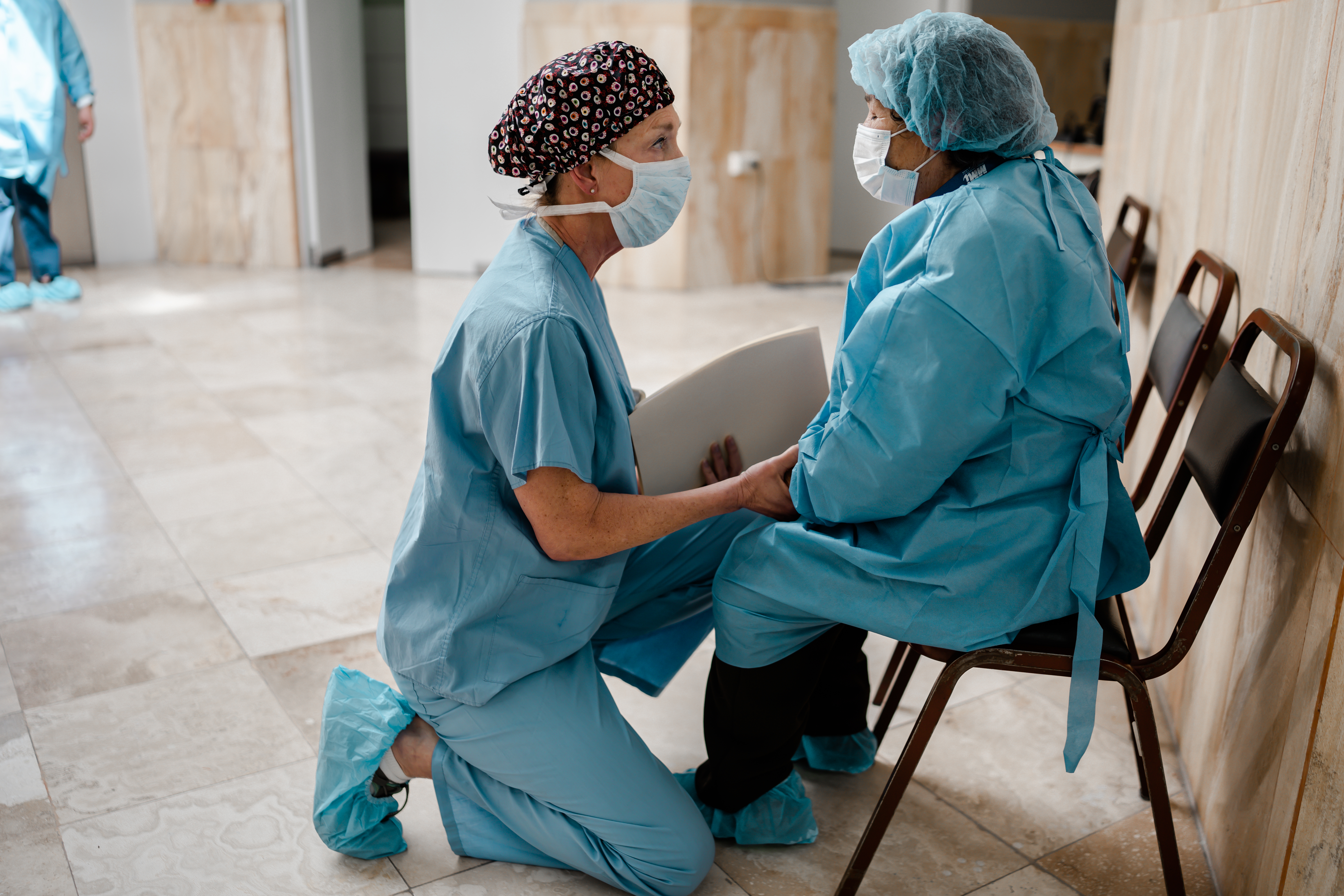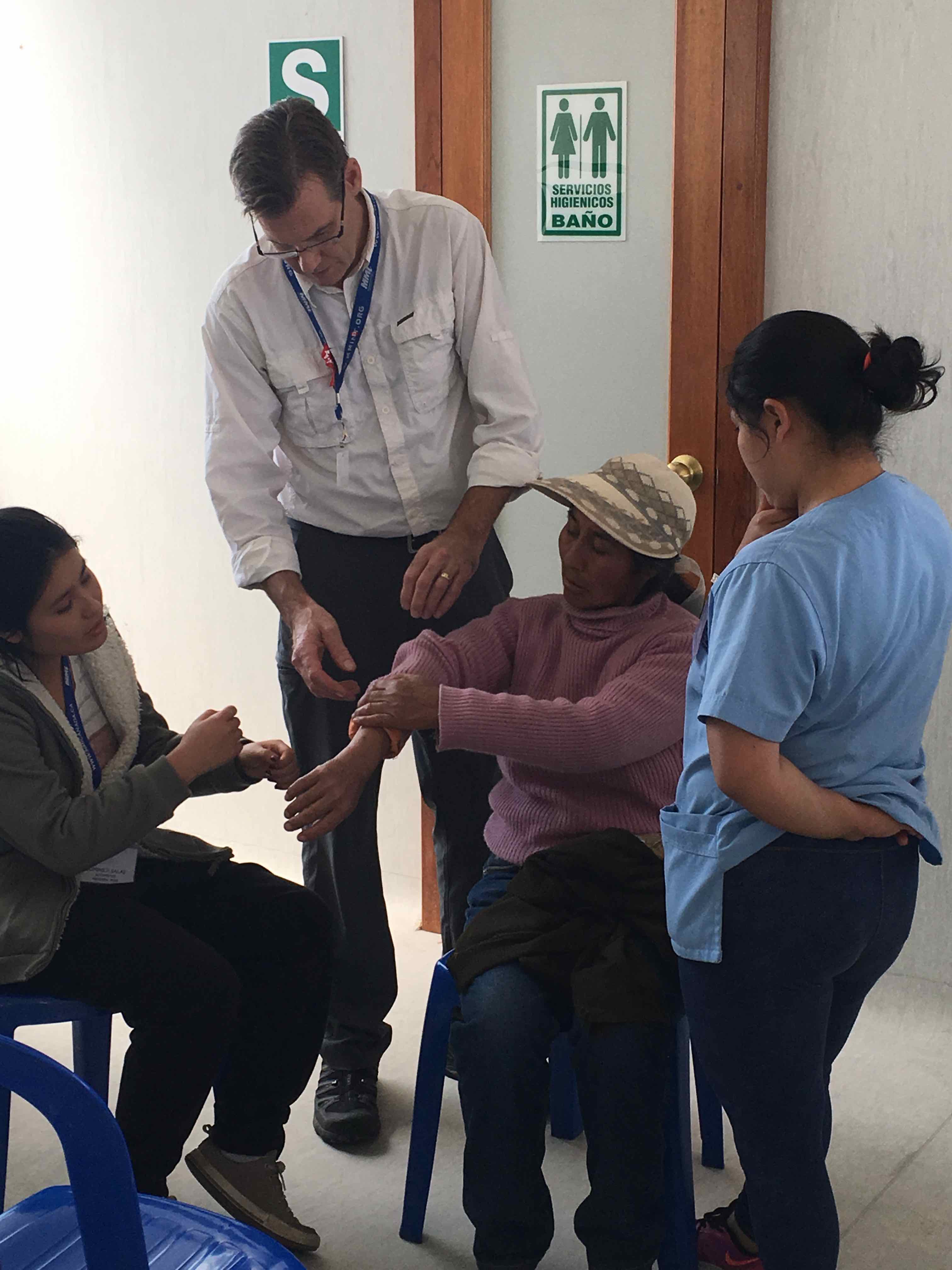Medical Missionaries’ Bequest Aims to Boost Global Health at Northwestern

For Kim Bass, ’87 MD, and Ben Gulli, ’87 MD, of St. Paul, Minnesota, global health is not just a keen interest, but a way of life marked by hard work, leading by example, and giving back.
Drs. Bass and Gulli, who met as students at Northwestern University Feinberg School of Medicine in the 1980s and wed in 1993, are avid medical missionaries: doctors who travel around the world and provide care to populations in need.
It is this passion that led the alums to make a bequest to their alma mater benefiting the Robert J. Havey, MD Institute for Global Health at the medical school. They hope that their gift will provide funds to medical trainees eager to make a difference abroad.

“This is a way for us to say, ‘Go for it,’ because it's a life-changing opportunity for everybody involved,” Dr. Bass said.
Dr. Bass is an ophthalmologist who, in 2007, began scaling back her clinic activities in the Twin Cities in favor of offering comprehensive eye care, with an emphasis on treating cataract patients, in several countries, including Peru, Bolivia, and Colombia.
Dr. Gulli, an orthopaedic surgeon who semi-retired this past year, has joined his spouse for a couple of her trips and travels separately to provide services in Nicaragua and, later this year, Kenya. Dr. Gulli focuses on training local healthcare workers in best practices in orthopaedics.
“That’s a really good thing, because then you’re leaving a legacy,” Dr. Gulli said. “Those people I’ve trained can then continue on doing what I’ve taught them as opposed to me just coming and showing up for a week or two of just doing a bunch of surgeries.”
Role Models for Others

These ideals align with those of the Havey Institute for Global Health, which is a catalyst for numerous student and faculty clinical and research initiatives that aim to ultimately improve human health worldwide.
Today, the institute has 400 members, nine centers, and more than 50 partner sites and collaborations around the world. In the past year alone, the institute’s research programs have grown by 71 percent.
“Dr. Bass and Dr. Gulli serve as inspiring role models for those of us in the field of global health,” said Robert J. Havey, ’80 MD, ’81, ’83 GME, deputy director of the Havey Institute for Global Health. “Their tireless efforts in South and Central America, as well as East Africa, along with their generous contribution to the Havey Institute, are making a significant impact in this critical area.”
In addition to their planned gift to support Northwestern’s global health program, Drs. Bass and Gulli pledged an equal sum to the MD Class of 1987 Scholarship. The couple said Jack Snarr, the former dean for Student Programs from 1968–2004, was a major influence in their decision-making. So, too, was Dr. Gulli’s personal experience as a struggling medical student.
“Medical education is so expensive,” Dr. Gulli said. “You know, I really struggled. I almost had to drop out of school because I couldn’t afford the tuition.”
The medical school aims to one day provide tuition support to all students who need it. Today, 66 percent of Feinberg students receive some level of financial aid. Providing tuition support to all would require more than tripling the current endowment of $251.2 million.
This story was published in the summer 2024 issue of Legacy, a planned giving newsletter from Northwestern's medical school. Read the whole issue here.